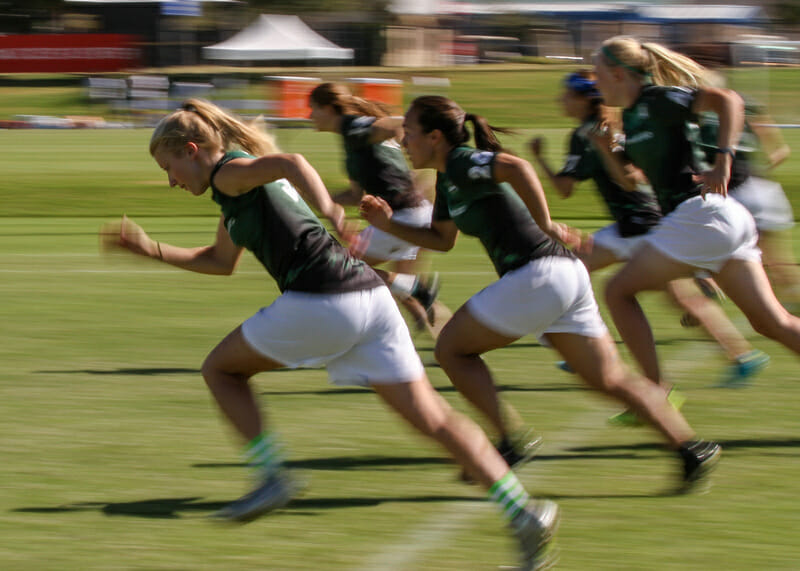These three exercises can help boost your sprint performance.
March 23, 2015 by Patrick Kelsey in Opinion with 3 comments

In the gym, we are constantly training basic human movements: the squat, the press, the push. Recently, there has been a push towards doing more functional strength training, finding new exercises to target specific movements on the athletic field.
Much has been written about the exact definition of functional strength training and what it may or may not encompass. Distinctions between functional training, holistic training, and sport specific training methods have been drawn, but remain blurred. Broadly defining what functional training may or may not be is beyond the scope of this article, a more useful approach might be to simply select your desired function, and work backwards from there.
Below are three basic movements that are slightly altered to make them more functional to a specific action: sprinting.
Movement: Hip Hinge
Functional Movement: Walking Kettlebell Swing
Improvement: This is a rare breed of lower body exercise in that it is loaded, high speed, and unilateral. Most of our single leg movements are either strength and balance focused (think skater squats) or completely unloaded and plyometric (single leg hops, etc). This exercise bridges the gap between force and velocity which has been found to improve performance adaptation (Haff & Nimphius, 2012). This movement also includes leg hyperextension and increased horizontal displacement which are essential components of sprinting.
Performance Cues:
– Make sure your stationary kettlebell swing looks and feels good. Hip hinging should not have much knee bend.
– In your first attempts at this, step forward every 3rd or 4th swing.
– Squeezing the glute muscle of your trailing leg and stepping forward slightly farther than your normal walking stride, but not a giant step.
Movement: Press
Functional Movement: Knee Raised Landmine Press
Knee Raised Landmine Press GFY
Improvement: We see again a small degree of hip hyperextension during this press as well, but the most important and functional aspect of this exercise is its movement through multiple planes. The use of a landmine apparatus (that’s the hinge that the bar rests in) varies the angle of resistance adding proprioceptive challenge. We can also see the separation in this stance which mimics sprinting posture.
Performance Cues:
– Move slowly and in a controlled manner for this movement.
– This position requires active tension in the standing leg and core – you should feel your glute muscles absolutely light up in this position.
– Toes forward and knee up on raised leg – letting your leg dangle or feet rotate out provides stabilization against rotation, robbing you of this variation’s benefit.
Movement: Core Rotation
Functional Movement: Hard Rollovers
Improvement: Rolling is what is known as a foundational movement (Cook, 2010); it is learned in infancy and is a precursor to crawling, walking, and sprinting. It is the first attempt we make at activating our core as humans. We’re going to use a variation that forces bracing against rotation with limbs in an extended position, similar to our press variation above. Try this instead of cable twists, which allow you to use big strong appendicular muscles to cheat your core out of rotational stability.
Performance Cues:
– Breathe throughout, into your diaphragm
– Lead with your head – look where you want to go first, don’t push off
– A ball can be placed between elbow and knee as a regression
***
Try these out next time you are in the weight room and want to vary your strength training routine. Remember, making something wobble isn’t necessarily making it more functional. Having an sense for how strength movements are specific to clearly defined movements can help your mind-body connection and your on-field performance.